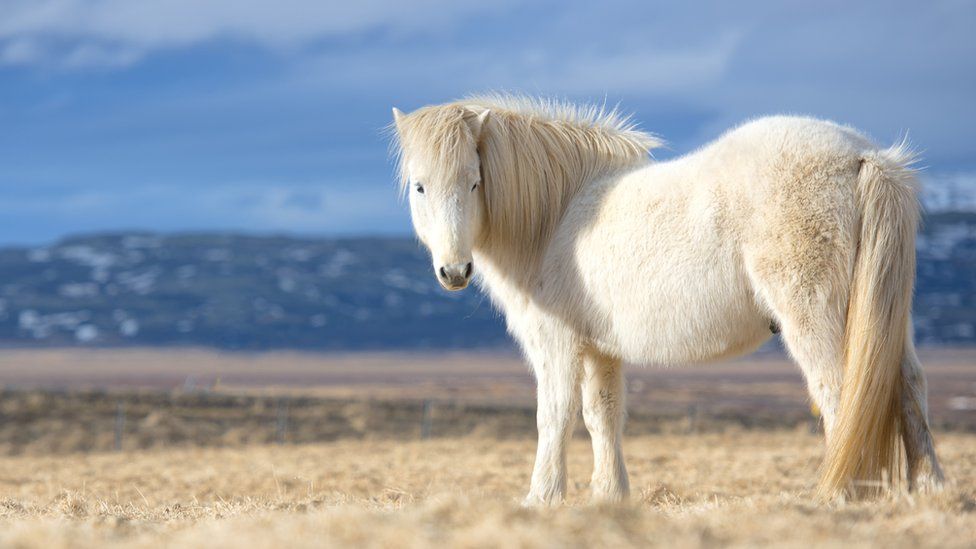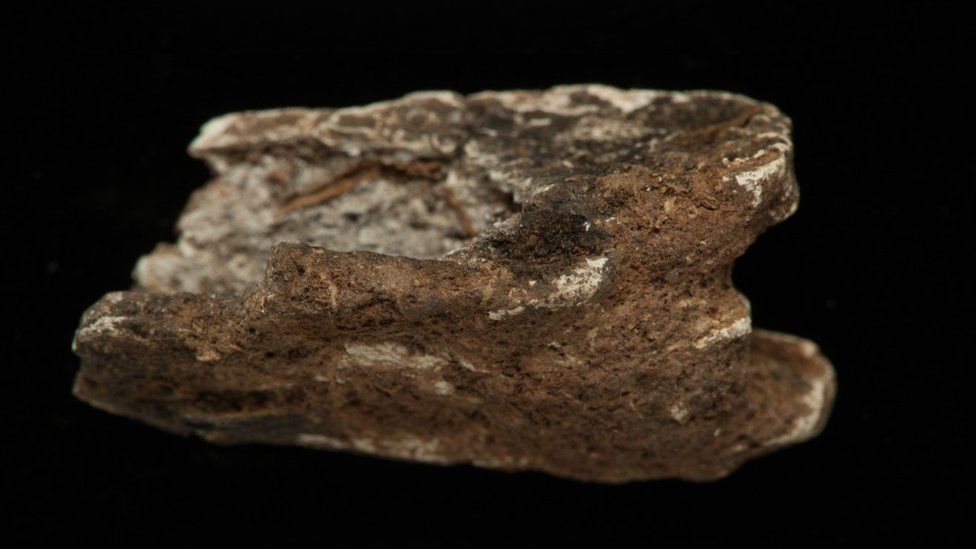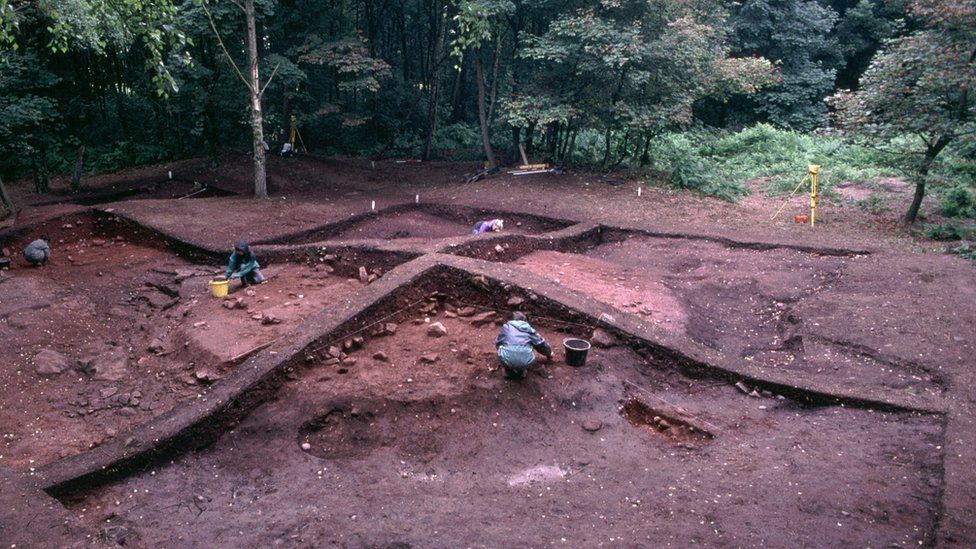A Viking leader probably chose his favourite animals to board a longboat to England, scientists say.
 Image source, Getty Images
Image source, Getty ImagesVikings sailing from Scandinavia to England brought horses, dogs and perhaps even pigs with them, according to analysis of bone remains.
Invading Vikings were previously thought to have largely stolen animals from villages in Britain.
The findings also provide evidence Viking leaders had a close relationship with animals and travelled with them, the lead scientist says.
The 9th Century bones were found in burial mounds in Heath Wood, Derbys.
Cremated animal and human remains had been found buried together, suggesting the creatures had special meaning and been burned on the same funeral pyre as humans, doctoral researcher Tessi Löffelmann, from Durham University and Vrije Universiteit Brussels, told BBC News.

Image source, Tessi Löffelmann
“They were treated more like companion animals rather than just for economic purposes,” she said.
“I find it really touching and it suggests we underestimate just how important animals were to Vikings.”
The horses and dogs would have travelled on Viking longboats across the North Sea, a journey that could take several weeks.
“Horses back then were smaller than horses are now, which could have made the journey a little bit more accommodating, but it was still probably wet and uncomfortable,” Ms Löffelmann said.
Prof Julian Richards, from the University of York, who co-directed the excavations, said: “The Bayeux Tapestry depicts Norman cavalry disembarking horses from their fleet but this is the first scientific demonstration that Viking warriors were transporting horses to England 200 years earlier.”

Image source, Tessi Löffelmann
Norse mythology and 13th Century sagas show animals played a big role in Viking life.
The scientists also found a pig bone in Heath Wood, the only large Scandinavian cremation site in Britain, but this may have been a token or part of a game brought from Scandinavia, rather than a live animal.
They discovered the animals had come from Scandinavia by analysing the strontium in their bones.
This element occurs naturally in rocks, soil and water, before making its way into plants – and, when these are eaten, bones and teeth.
Archaeologist Cat Jarman, who has worked at Heath Wood but was not involved in the research, said using this technique on cremated bone was “really exciting” because many Viking burials used cremation.
“It has opened up a whole new avenue of evidence,” she said.
The findings are published in scientific journal Plos One.